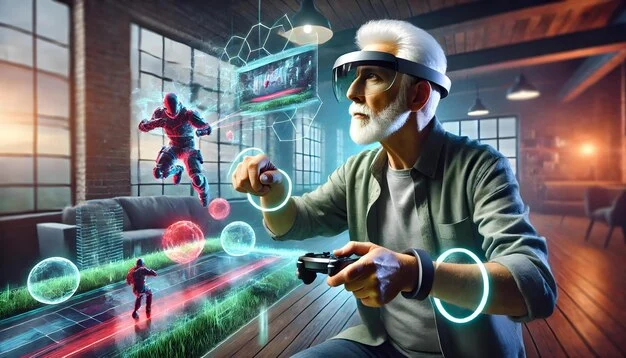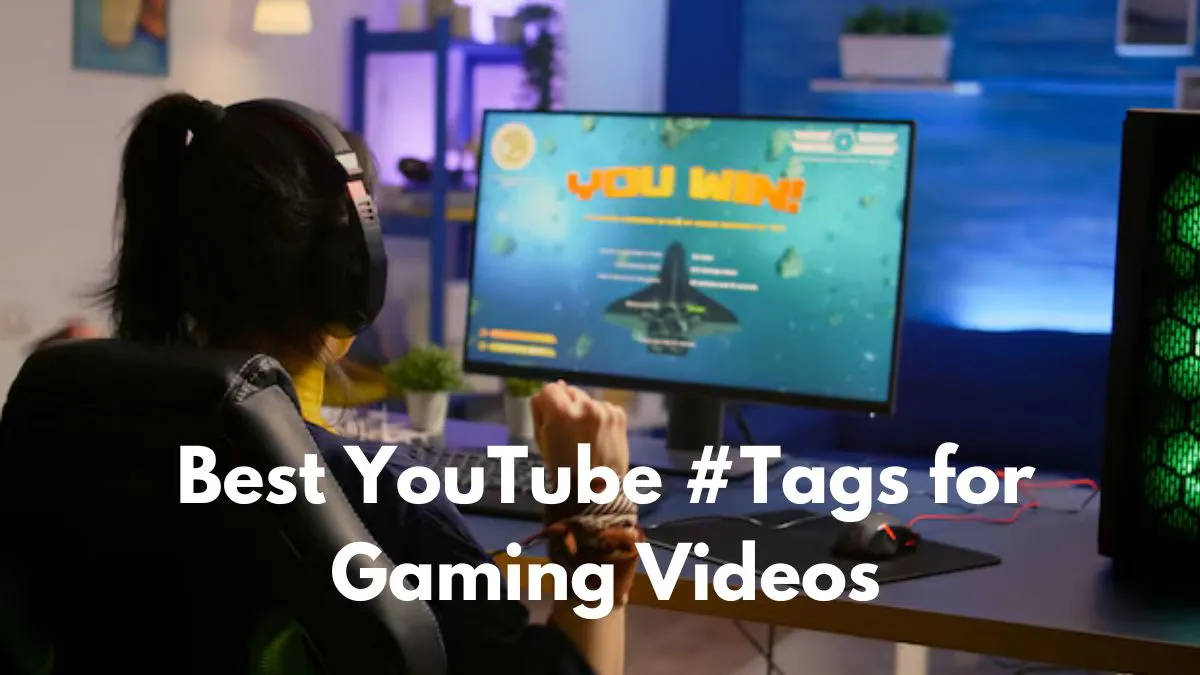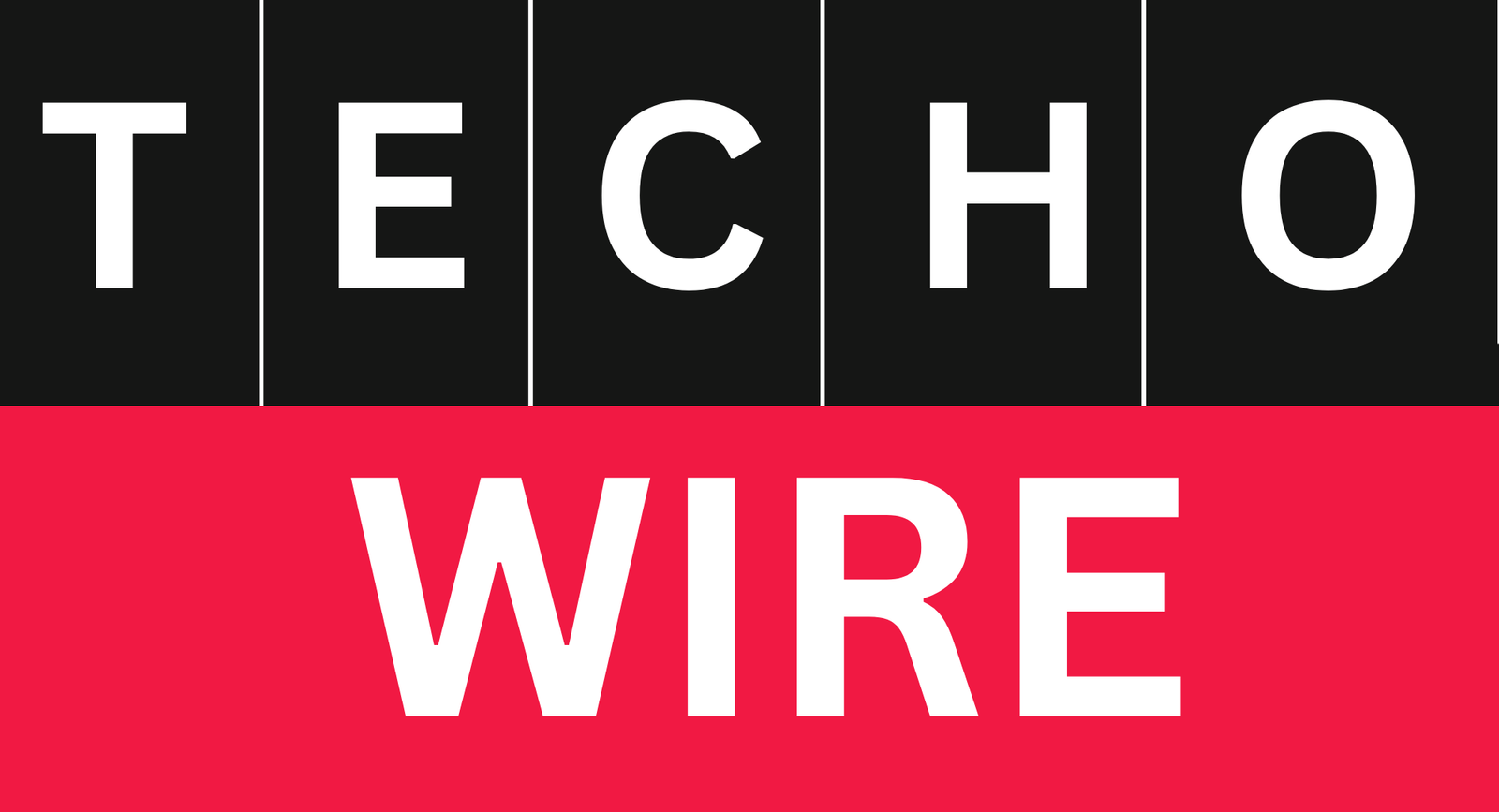Upcoming Gaming Technology Trends in 2025: The gaming industry has changed significantly over the years, driven primarily by technological advancements. From the early days of pixel gaming to the current era of immersive virtual environments, technology continues to shape how games are developed, played and experienced. Understanding this advancement highlights the complex relationship between gaming and technological advancement.
Technology is the backbone of the gaming industry, driving development and bringing new possibilities. By leveraging advances in hardware, artificial intelligence and connectivity, gaming has transformed into a global event that transcends age, culture and geography. This powerful relationship between technology and gaming will continue to shape the future of the industry and promises thrilling developments.
What will You Get in this Article?
The gaming industry has always been at the forefront of technological advancement, and 2025 is expected to see a number of innovative trends that will shape how games are developed and experienced. As technology continues to advance, developers and players can expect innovations that increase accessibility, immersion, and connectivity.
The gaming industry in 2025 will be marked by quick advances in technology that willrecosider how games are created and experienced. From the rise of cloud gaming and AI-based experiences to the convergence of blockchain and immersive technologies, the future of gaming is expected to be dynamic and exciting. As this trend unfolds, players and developers alike will face a new era of innovation and push the boundaries of gaming.
How gaming has evolved in the last decade?
Over the past decade, online gaming has become a mainstream of the industry. Improvements in network infrastructure and the increase of multiplayer gaming platforms have enabled gamers around the world to connect and compete instantly. Once a relatively small community, esports has grown into a multi-billion-dollar industry with professional leagues, global championships and a loyal fan base. Games like Fortress Heroes, League of Legends, and Call of Duty have become cultural experience, showing that competitive gaming has become a legitimate career path for many players.
Top Gaming Technology Trends in 2025
- Advanced Cloud Gaming
Cloud gaming is becoming a superior force in the industry. Services like GeForce Now and Xbox Cloud Gaming have expanded their reach, allowing gamers to stream high-quality games without the need for high-end hardware. By 2025, the rise of 5G networks and edge computing is look to solve lag issues and make cloud gaming more convenient and ideal.
The main challenge facing cloud gaming is its dependence on stable network connections, but advances in global network infrastructure are easing this obstacle. Improved servers and regional data centers will increase performance, and partnerships between service providers and technology companies will further expand availability. As these challenges are addressed, cloud gaming could compete with traditional consoles and PCs as the dominant way to play.
- Real-Time Ray Tracing 2.0
Ray tracing changes the visual quality of games by simulating realistic lighting and reflections. By 2025, the second generation of the technology, usually called Ray Tracing 2.0, will bring a more realistic feel. Hardware enhancement from companies like NVIDIA and AMD will make at the same time ray tracing a standard feature rather than a luxury.
Multiple upcoming games are expected to showcase the technology’s potential. Games that leverage Ray Tracing 2.0 set new standards for graphical fidelity by delivering an immersive visual experience. This evolution not only improve the single-player campaign, but also redefines the multiplayer experience with stunning and immersive visuals.
- Artificial Intelligence in Gaming
Artificial intelligence may play a bigger role in games, affecting gameplay and development. Smarter NPCs will adapt to player behavior, creating more difficult and unsure scenarios. Artificial intelligence will also allow dynamic narratives that evolve based on player choices, providing a personalized experience.
On the other side, development of artificial intelligence-assisted tools will speed up game design. These tools can automate repetitive tasks, optimize assets, and even suggest creative elements, allowing developers to focus on innovation. By 2025, artificial intelligence is expected to significantly decrease production time for independent developers and studios.
- Mixed Reality (MR) Gaming
Mixed reality, a combination of augmented reality (AR) and virtual reality (VR), is attracting attention as the next edge in immersive gaming. Devices like the Apple Vision Pro are expected to provide flawless MR experiences that blend virtual objects with the real world.
MR games create opportunities for multiplayer environments where players associate in both virtual and physical spaces. By 2025, MR hardware advancements and software innovations will make mixed reality gaming more mainstream, providing new ways to interact with digital content.
- The Rise of Blockchain and NFTs in Gaming
Blockchain technology is reshaping gaming economies by enabling decentralized ownership of in-game assets. Non-fungible tokens (NFTs) allow players to own unique, tradable items, creating new revenue streams for both developers and gamers.
Blockchain technology reshapes the gaming industry by enabling decentralized ownership of in-game assets. Non-fungible tokens (NFTs) allow players to own individual tradable items, creating new revenue streams for developers and gamers.
However, concerns remain about blockchain’s environmental impact and regulatory challenges. By 2025, sustainable solutions and clearer regulations can address these issues, making blockchain a more viable option for gaming. As these challenges are addressed, blockchain technology could become a mainstream of game development.
- Wearable Gaming Devices
Wearable technology is another trend expected to get momentum by 2025. Tactile feedback suits and gloves provide a sense of touch, making VR and AR games more immersive. The integration of biometric data, such as heart rate monitoring, can further personalize gameplay by adjusting challenges based on player feedback.
These devices also increase accessibility, allowing more players to participate in games in innovative ways. Compatibility with existing systems will make wearable gaming technology a important part of the gaming ecosystem.
- Procedural Content Generation
Procedural content generation uses algorithms to create special or unique, endless game worlds. This approach decrease development costs and expands creative possibilities. Games like No Man’s Sky have demonstrated the potential of this technology.
By 2025, AI-based procedural generation will become more advanced, allowing developers to effectively create complex environments and narratives. This technology can benefit independent developers by increasing the depth and replayability of games while giving them the tools to compete with larger studios.
- Esports and Streaming Innovations
Esports and game streaming are growing exponentially, and technological advancements will continue to improve these experiences. Innovations in live streaming formats and virtual arenas will create more engaging events for viewers.
Artificial intelligence tools will also support broadcasters by automating video editing and improving audience interaction. By 2025, esports will reach new heights, with interactivity and instant analytics changing the way fans engage with live events.
- Quantum Computing in Gaming
Although quantum computing is still in its infancy, it has the potential to revolutionize gaming by solving complex calculations instantly. This technology enables highly realistic physics simulations and unmatched artificial intelligence behavior.
Integrating quantum computing into games remains a challenge due to high cost and technical difficulty. But by 2025, breakthroughs in this area could redefine game development and give us a glimpse into the future of interactive entertainment.
Which gaming technology trend are you most excited about? Share your thoughts in the comments!
Also Read: Level Up Your Gaming: Best Wifi Router Settings for Gaming





